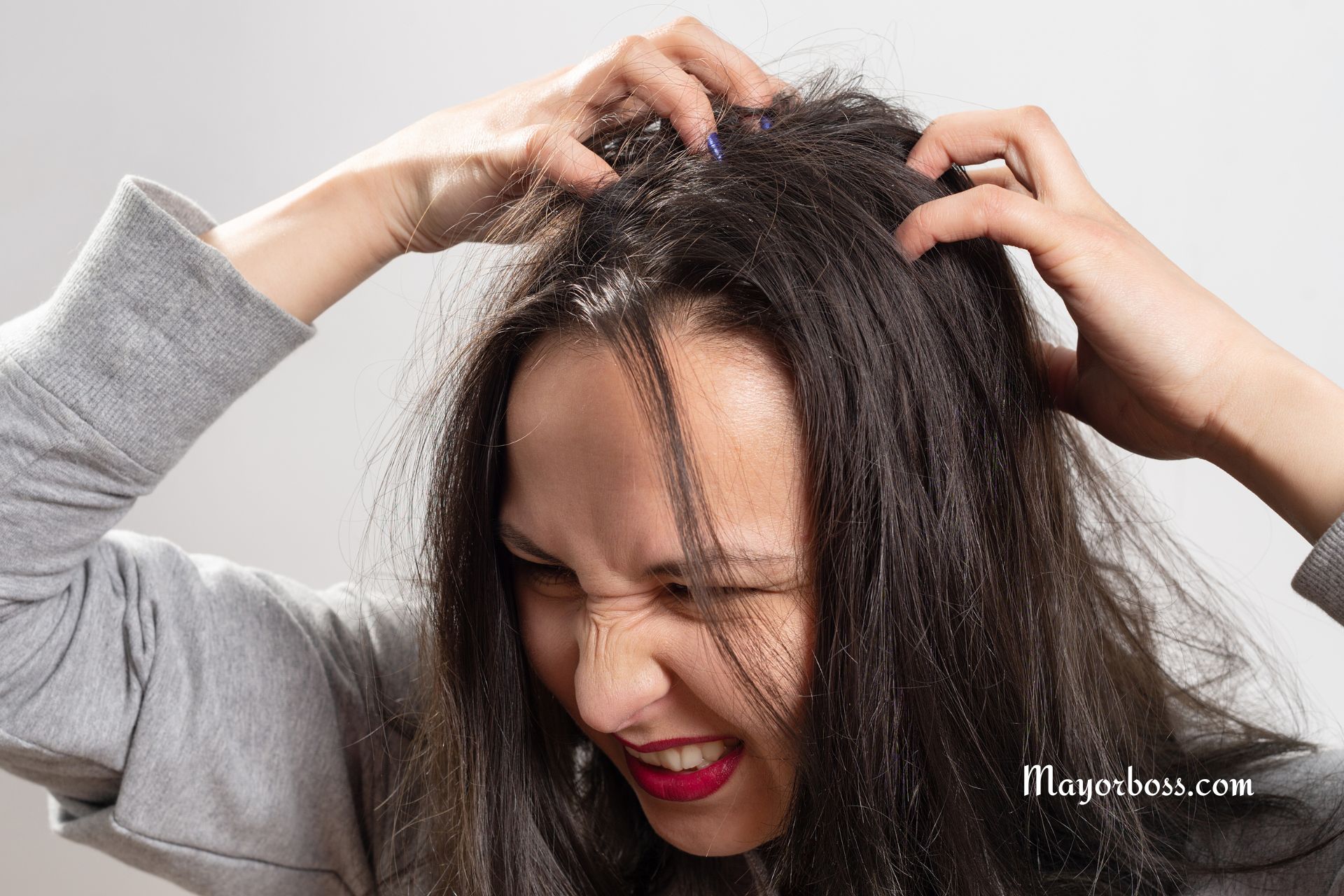How to Put an End to Scratching Your Head
Do you frequently catch yourself scratching your head? Whether it’s a subconscious habit or a persistent itch, it can be embarrassing, uncomfortable, and even lead to scalp damage. Thankfully, there are plenty of ways to tackle this issue. In this article, we’ll explore why you might be scratching your head and provide expert tips on how to break the cycle.

Understanding the Itch: Why Does My Head Itch?
Before discussing the solutions, it’s essential to figure out the underlying cause of your itchy scalp. Here are some of the most common culprits:
- Dandruff: This is probably the most well-known reason for an itchy scalp. Dandruff is signaled by dry, flaky skin on your scalp, often accompanied by itchiness.
- Dry Scalp: While similar to dandruff, a dry scalp lacks the flakes, and you might find the itch persists on other dry areas of your body as well. Cold weather, frequent shampooing, and harsh ingredients in hair products can trigger it.
- Psoriasis: This chronic skin condition creates flaky, red, or silvery patches on the scalp, causing significant itching.
- Lice: These tiny parasites irritate the scalp as they live and feed on blood. If you think this might be the cause, investigate closely or consult a doctor immediately.
- Ringworm: A common misconception is that ringworm is caused by an actual worm. It’s a fungal infection causing round, itchy rashes on the scalp, sometimes with hair loss.
- Product Build-Up: Overusing products like hair spray, dry shampoo, or gels can contribute to residue building up and causing scalp irritation.
- Allergies: Some hair products, particularly dyes or fragrances, can cause allergic reactions leading to itchiness, redness, or flakiness on the scalp.
How to Get Rid of an Itchy Scalp
Identifying the root cause is half the battle! Here are remedies and practical advice to put that annoying itch to rest:
Tackling Dandruff and Dry Scalp
- Medicated Shampoo: Invest in an over-the-counter dandruff shampoo containing ingredients like pyrithione zinc, selenium sulfide, salicylic acid, or ketoconazole. These shampoos target flakes and the underlying fungal causes. If necessary, consult your doctor for stronger prescription formulas.
- Moisturizing Treatments: Look for hair oils or masks containing hydrating ingredients like argan oil, coconut oil, or jojoba oil. Massage the oil into your scalp, let it sit, and wash it out for nourishment. This is especially helpful if your scalp is dry.
- Change Your Products: Switch to gentle, fragrance-free shampoos and avoid harsh ingredients that can disrupt your scalp’s natural balance.
Addressing Specific Conditions
- Psoriasis: Psoriasis requires specialized treatment. Your doctor might suggest topical creams, prescription shampoos, light therapy, or oral medications for the condition.
- Lice: Special lice shampoos and careful combing are needed to eradicate lice. Treat affected bedding and belongings, too, to prevent re-infestation.
- Ringworm: Antifungal shampoos and medications effectively treat ringworm infections.
- Allergies: Pinpoint the specific irritant and avoid products containing that ingredient meticulously.
General Tips to Stop the Scratching
- Avoid Excessive Scratching: This might be easier said than done! While scratching your head may give momentary relief, it further irritates the scalp, leading to a vicious cycle of itching and scratching. Distract yourself by engaging your hands in something else when an itch emerges.
- Cool it Down: Applying a cold compress or even taking a cool shower can offer temporary relief from itching and inflammation.
- Relax: Stress can aggravate skin conditions. Relaxation techniques like meditation, yoga, or deep breathing exercises might help curb itchiness.
FAQs
- How often should I wash my hair if I have an itchy scalp? Aim for 2-3 times a week with a suitable shampoo. Avoid over-washing, as it strips natural oils and exacerbates dryness and itchiness.
- Are home remedies effective in treating an itchy scalp? Home remedies like coconut oil or tea tree oil may offer some relief, but if the issue is persistent and your scalp is irritated, seeking professional advice is recommended. Do not risk damaging your scalp further with unproven methods.
- When should I see a dermatologist? If the itching persists despite lifestyle changes and treatment, or you notice rash, blisters, or signs of infection, consulting a dermatologist is crucial for accurate diagnosis and proper treatment.
